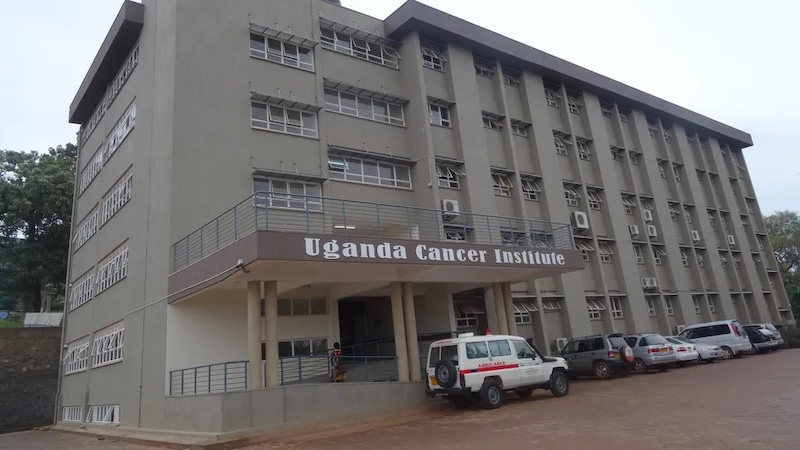In a bold step toward affordable, locally-driven cancer treatment, the Uganda Cancer Institute (UCI) has announced the development of six natural therapeutic remedies aimed at easing the burden of cancer care in the country.
The initiative, led by the UCI’s department of Natural Therapeutics, marks a pivotal shift in how Uganda approaches one of its most pressing health challenges. Each year, UCI diagnoses over 30,000 new cancer cases across the country. The most prevalent forms include breast, cervical, liver, prostate, ovarian, colon cancer, leukemia, Kaposi’s sarcoma, Burkitt’s lymphoma, and others.
Patients often struggle with both the physical toll of the disease and the soaring costs of imported drugs. Now, thanks to an innovative team of pharmacognosists and researchers, six new natural remedies—Tincture, Muconat, Laxanate, Immunonat, Mammanat, and Healnat—are being developed to offer effective, affordable support in cancer treatment and management.
“This is a major opportunity for cancer management in Uganda,” said Dr Boniface Adeka, a pharmacist at UCI specializing in natural medicines.
“Natural products generally come with fewer side effects, which helps improve patient comfort and adherence to treatment.” Dr Adeka emphasized the economic impact of these remedies.
“By producing them locally, we’re drastically lowering costs. For instance, the imported drug Colfield Rustin costs around Shs 400,000. Our alternative, Immunonat, is just Shs 15,000. That kind of difference is life-changing for patients,” he explained.
He also pointed out that supply issues frequently affect conventional medicines, forcing patients to go without or travel long distances.
“These natural options will help bridge that gap, providing safe and effective alternatives,” he said. The project is currently being supported by a grant from the ministry of Science, Technology and Innovation. However, Dr Adeka noted that funding remains limited.
“We are calling on the government and other stakeholders to invest more in this innovation. We’re also open to partnerships with scientists for testing and development.” UCI hopes to complete lab testing of the remedies within a year, after which clinical trials will begin. One of the lead remedies, Tincture, is designed for the prevention and early treatment of prostate cancer.
“This product is intended for men over 45, especially those at high risk,” said Dr Adeka.
“It helps prevent the progression of the disease from early to advanced stages and improves the patient’s quality of life through its antioxidant properties, which help counteract the cellular damage caused by chemotherapy.”
Another promising remedy is Muconat, a herbal mouthwash made from local plants like tamarind and aloe vera. It targets oral mucositis, a painful condition common in cancer patients undergoing chemotherapy.
“Patients often suffer mouth sores, lesions, and infections. Muconat helps manage those symptoms and promotes faster healing,” Dr Adeka said. Immunonat plays a critical role in managing neutropenia, a dangerous side effect of chemotherapy that drastically lowers white blood cell counts and leaves patients vulnerable to infections.
“If neutrophil levels drop, cancer treatment must be delayed,” Dr Adeka explained. “This interruption can harm outcomes. Immunonat supports bone marrow function to maintain neutrophil counts, ensuring continuity of treatment.”
Another innovation, Mammanat, is formulated from soursop, ginger and other herbal ingredients to support breast cancer patients. It’s recommended as a complementary therapy, especially for women undergoing chemotherapy or those at risk of the disease.
“It doesn’t replace conventional treatments, but it works alongside them to enhance the patient’s resilience,” said a UCI spokesperson.
Healnat, a topical herbal ointment, addresses a major gap in cancer-related wound care. Many cancer patients, especially those with advanced breast cancer, develop chronic wounds resistant to antibiotics.
“Healnat is designed to fight bacterial infections where standard treatments have failed. It’s a powerful addition to our wound care toolkit,” said Dr Adeka.
These natural remedies are part of a broader effort by UCI to expand access to cancer care, innovate with local resources, and reduce the financial toll of treatment. The work being done in the department of Natural Therapeutics is not only a medical breakthrough—it’s also a testament to Uganda’s potential to lead in indigenous, cost-effective healthcare innovation.
As UCI moves toward clinical trials, the hope is that these remedies will soon become mainstream options, offering patients relief, dignity, and a renewed chance at life—all without the crippling costs of conventional treatments.
Related
